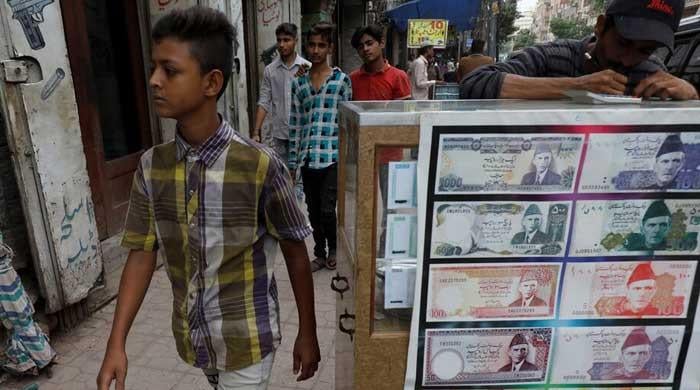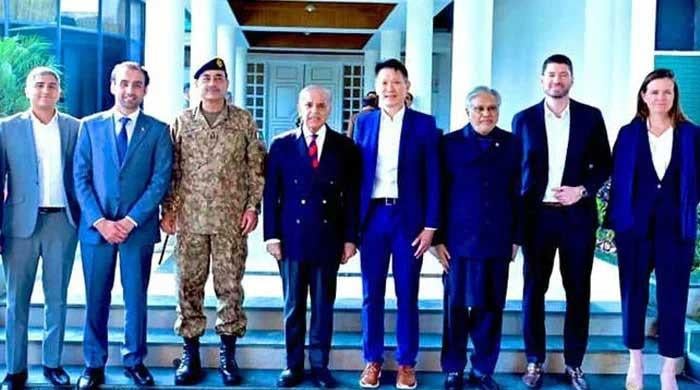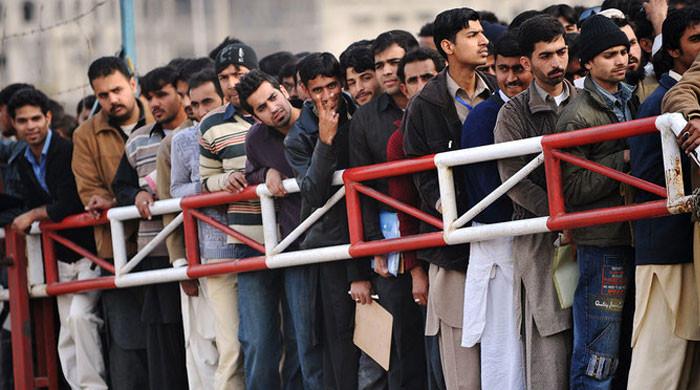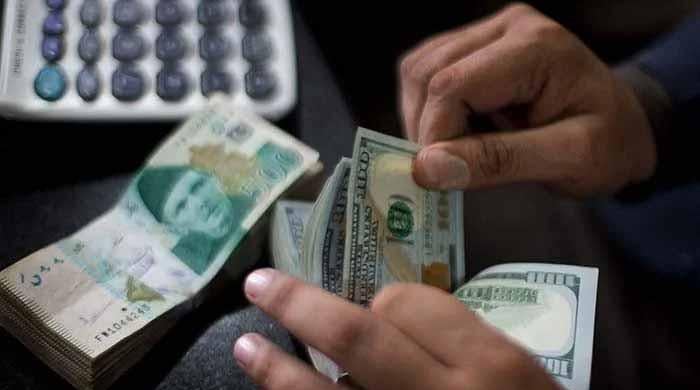More motorcyclists, fewer helmets
'Our roads are wild and accidents are frequent. But many riders could be saved from the worst consequences of an accident if they wear a helmet'
January 17, 2018
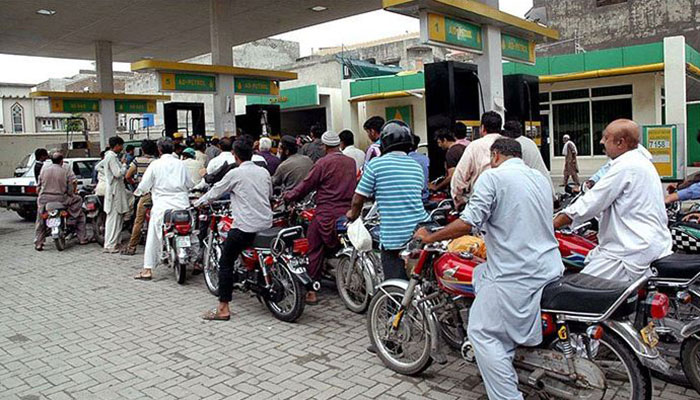
When Sultan and his younger brother Adeel were brought to a hospital in Sargodha, Punjab, they were both covered in blood. They had an accident in Bhera while riding a motorcycle. Neither was wearing a helmet. The doctors tried what they could but Sultan died from his head injuries. He was only 27-years-old and father to an infant son. His mother’s wails upon seeing his dead body were heart wrenching.
Adeel, 25, survived. It took him two months to recover. Due to a head injury, he permanently lost hearing in his left ear. The tragedy changed the life of the family, forever.
Unfortunately, what happened to Sultan and Adeel last year happens to many in Pakistan every year. Our roads are wild and accidents are frequent. But many riders could be saved from the worst consequences of an accident if they wear a helmet.
A 2008 research paper by the London-based Cochrane Injuries Group, analysed 61 studies from different parts of the world on helmets and motorcycles. It found “remarkable consistency” in the result that “motorcycle helmets were found to reduce the risk of death and head injury in motorcyclists who crashed”.
Pakistan’s law requires that motorcyclists wear a helmet. Section 89-A of the Provincial Motor Vehicle Ordinance 1965 says, “No person shall drive, or ride the pillion seat of, a two-wheeled motor vehicle except when he is wearing a crash helmet.” There is a Rs200 fine in Punjab for non-compliance.
Despite the legal requirement, few drivers and even fewer pillion riders wear a helmet. Riding a motorcycle without a helmet is a frequent cause of traffic fines. But fines have not proved to be an effective solution. In fact, when police in Sindh started a campaign against driving without helmet, it increased both bribery and the price of helmets.
The problem is not unique to Pakistan but its scale here is worrying. We are a country of 207.7 million people and motorcycle has become our national ride. More than a million motorcycles are getting sold in a year, breaking records. Motorcycles now outnumber all other types of vehicles combined. But helmets sales are not keeping up even though they are much cheaper. A used motorcycle may cost around Rs30,000 but one can buy a used helmet for less than Rs1,000.
What, therefore, is keeping our motorcyclists from wearing a helmet?
Researchers have found that inconvenience is an issue. In day-to-day life, we are not used to wearing something on our head. A helmet reduces our vision and hearing. The strap on the chin can be irritating. During the hot summer, a helmet makes us feel even warmer. A helmet is also a clunky object that the rider needs to lock with the bike or carry around.
Then there are other behavioural reasons unrelated to helmets. Some people assume that they will be spared the tragedies that befall those around them. Others follow herd behaviour. If those around them are not wearing a helmet, they won’t either.
Wearing a helmet cannot be made as convenient as not wearing one. But the more riders wear a helmet, the more likely it is that other riders would.
So how do we encourage our Sultans and Adeels to wear a helmet?
Any solution will be based on the rider having a helmet, being willing to wear it, and facing some disincentive for not wearing it.
Recently, the senior superintendent of Islamabad Traffic Police proposed an interesting solution. He suggested that a motorcycle dealer sell two helmets with each motorcycle. His suggestion has merit. In fact, such steps should have been voluntarily introduced by the manufacturer and dealers themselves as business ethics.
I would like to propose one more solution: a public-private partnership between traffic police and reputable local NGOs. On selected locations, once a traffic police official stops a motorcyclist for not wearing a helmet, the rider should be given the option to buy a helmet on spot from the NGO staff or face a police fine. Of course, the helmet should be of decent quality and the price should be competitive with market prices.
If the motorcyclist cannot buy a helmet on the spot for any reason, he should be fined a small amount, say Rs50. In addition, he should show a helmet and preferably a proof of its purchase or buy one on the spot when collecting his seized documents. The profits from the sale of helmets and the fine should be invested into a sustained awareness campaign on wearing helmets. That's because, in the long term, wearing a helmet comes down to awareness about traffic discipline. Discussing the reasons behind wearing a helmet at home, college, or the office could help change our behaviour.
Yes, some riders will never learn. But there are many who would start wearing a helmet when nudged. It’s worth trying to nudge them. Isn’t it?
Hayat is a former executive director at the Securities and Exchange Commission of Pakistan.
He tweets @usman_hayat




